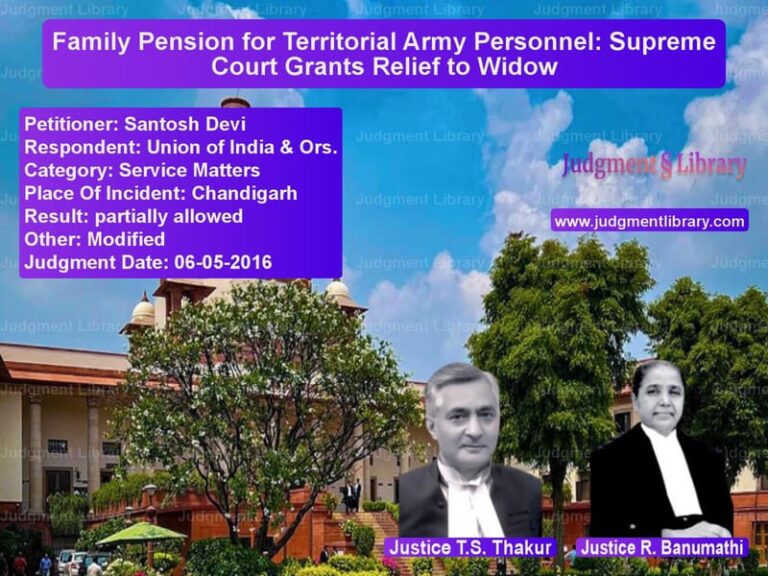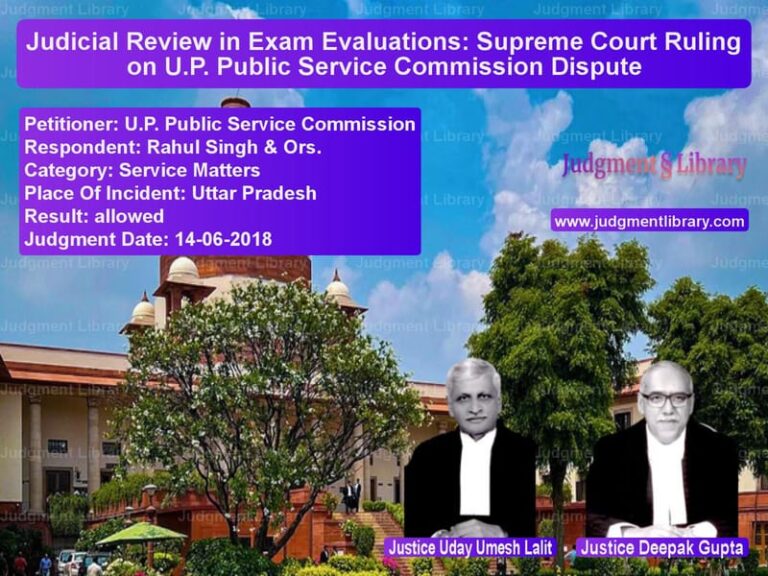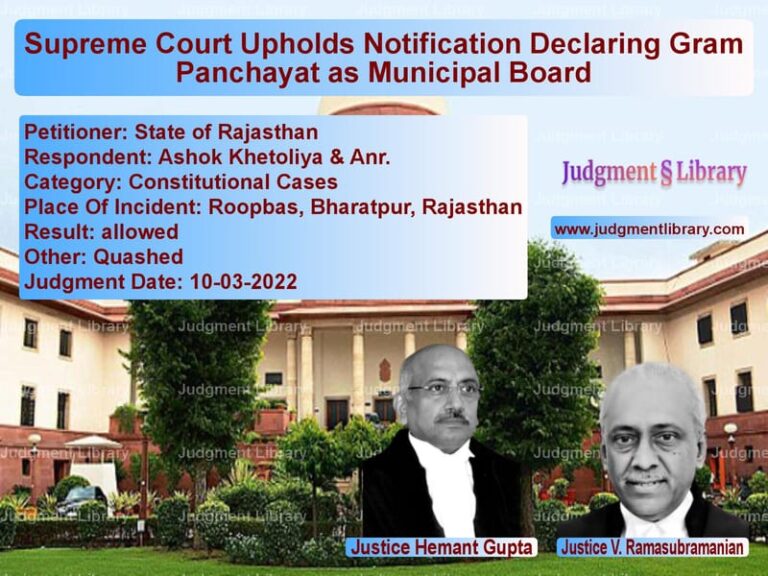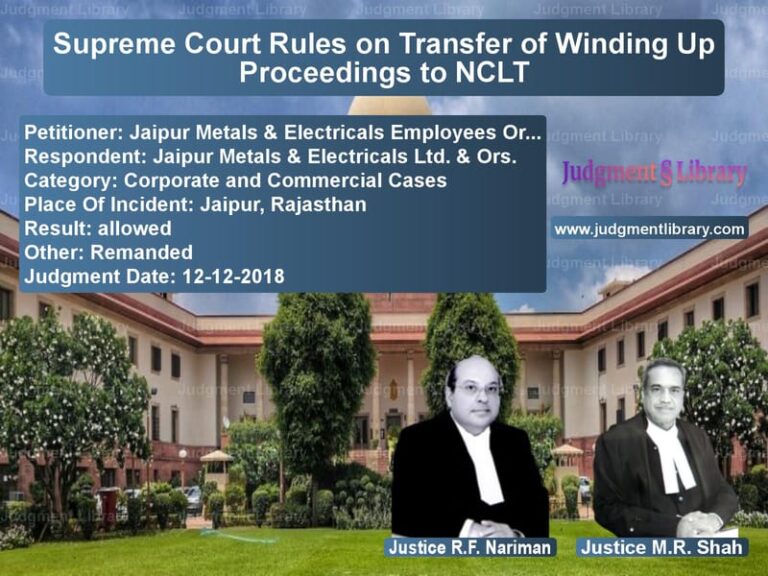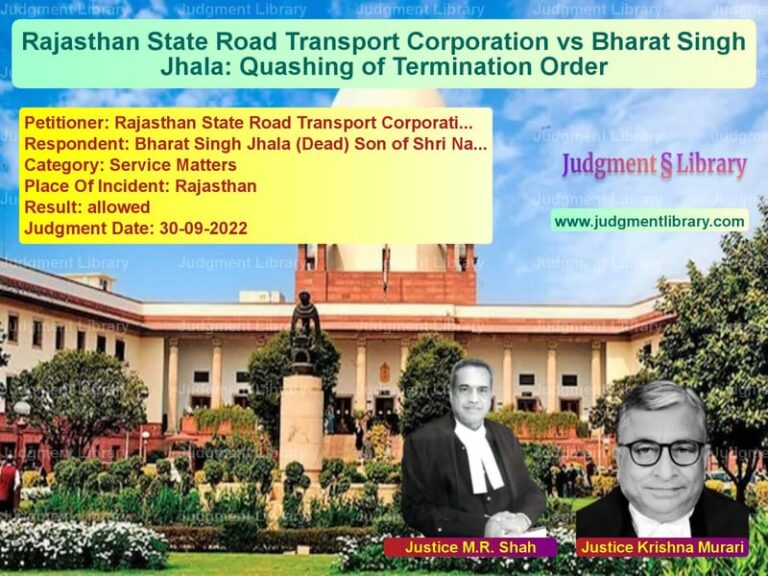Arbitration in Government Contracts: Supreme Court’s Ruling on Independent Arbitrators
The Supreme Court of India recently addressed a significant legal question concerning the appointment of independent arbitrators in government contracts. The case, Union of India vs. Parmar Construction Company, dealt with disputes arising from construction contracts where government authorities refused to release payments or honor escalation claims, leading to arbitration proceedings.
The key issue before the Court was whether the High Court was justified in appointing independent arbitrators under Section 11(6) of the Arbitration and Conciliation Act, 1996, without adhering to the agreed-upon arbitration clauses in the contracts.
Background of the Case
The case involved multiple appeals filed by the Union of India and its agencies, challenging the High Court’s orders appointing independent arbitrators in construction contract disputes. The disputes stemmed from various railway projects, where contractors claimed compensation for cost escalation, delayed payments, and withheld security deposits.
Despite arbitration clauses in the agreements, the government authorities refused to appoint arbitrators, leading the contractors to approach the High Court under Section 11(6) of the Arbitration Act, seeking the appointment of independent arbitrators.
Petitioner’s Arguments
The Union of India, represented by the Additional Solicitor General, argued:
- The High Court erred in appointing independent arbitrators without following the procedure outlined in the arbitration clauses of the contracts.
- As per Clause 64(3) of the General Conditions of Contract (GCC), disputes were to be arbitrated by railway officers, and this agreed-upon procedure should have been followed.
- The Amendment Act, 2015, which introduced new provisions on arbitrator independence, was wrongly applied retroactively.
- Contractors who had signed ‘No Claim Certificates’ were not entitled to arbitration.
Respondent’s Arguments
The contractors countered:
- The government agencies unilaterally reduced their payments and withheld legitimate dues, leaving them with no choice but to challenge these actions.
- The ‘No Claim Certificates’ were signed under duress, as payments were not released unless contractors signed them.
- The High Court was justified in appointing independent arbitrators to ensure neutrality and fairness.
- Government-appointed arbitrators could be biased, and contractors had a right to an impartial dispute resolution mechanism.
Supreme Court’s Observations
The Supreme Court, analyzing the matter, observed:
“The appointment of arbitrators should primarily follow the agreed terms of the contract. However, in cases where there is a justifiable apprehension of bias, the Court may appoint an independent arbitrator.”
The Court emphasized that:
“Clause 64(3) of the GCC specifies a procedure for appointment, and unless there is a demonstrable failure or conflict, the Court should not bypass this mechanism.”
Final Judgment
The Supreme Court ruled:
- The High Court’s orders appointing independent arbitrators were set aside.
- The Union of India was directed to appoint arbitrators as per Clause 64(3) of the contracts within one month.
- If the government failed to do so, the contractors could approach the High Court again for the appointment of independent arbitrators.
- The arbitrators were instructed to conclude the proceedings expeditiously.
Implications of the Verdict
The ruling has several key implications:
- Reaffirmation of Contractual Arbitration Clauses: The judgment reinforces that agreed arbitration procedures must be honored unless exceptional circumstances justify deviation.
- Government Accountability in Contractual Disputes: The ruling ensures that government agencies cannot arbitrarily refuse arbitration proceedings.
- Balancing Fairness and Legal Framework: While recognizing the need for fairness, the Court upheld the principle that arbitration agreements should be respected.
This judgment provides crucial guidance on arbitration in government contracts, striking a balance between contractual obligations and judicial intervention to ensure fair dispute resolution.
Petitioner Name: Union of India.
Respondent Name: Parmar Construction Company.
Judgment By: Justice A.M. Khanwilkar, Justice Ajay Rastogi.
Place Of Incident: India.
Judgment Date: 29-03-2019.
Don’t miss out on the full details! Download the complete judgment in PDF format below and gain valuable insights instantly!
Download Judgment: Union of India vs Parmar Construction Supreme Court of India Judgment Dated 29-03-2019.pdf
Direct Downlaod Judgment: Direct downlaod this Judgment
See all petitions in Arbitration Act
See all petitions in Contract Disputes
See all petitions in Enforcement of Awards
See all petitions in Judgment by A M Khanwilkar
See all petitions in Judgment by Ajay Rastogi
See all petitions in allowed
See all petitions in Modified
See all petitions in supreme court of India judgments March 2019
See all petitions in 2019 judgments
See all posts in Arbitration and Alternate Dispute Resolution Category
See all allowed petitions in Arbitration and Alternate Dispute Resolution Category
See all Dismissed petitions in Arbitration and Alternate Dispute Resolution Category
See all partially allowed petitions in Arbitration and Alternate Dispute Resolution Category


